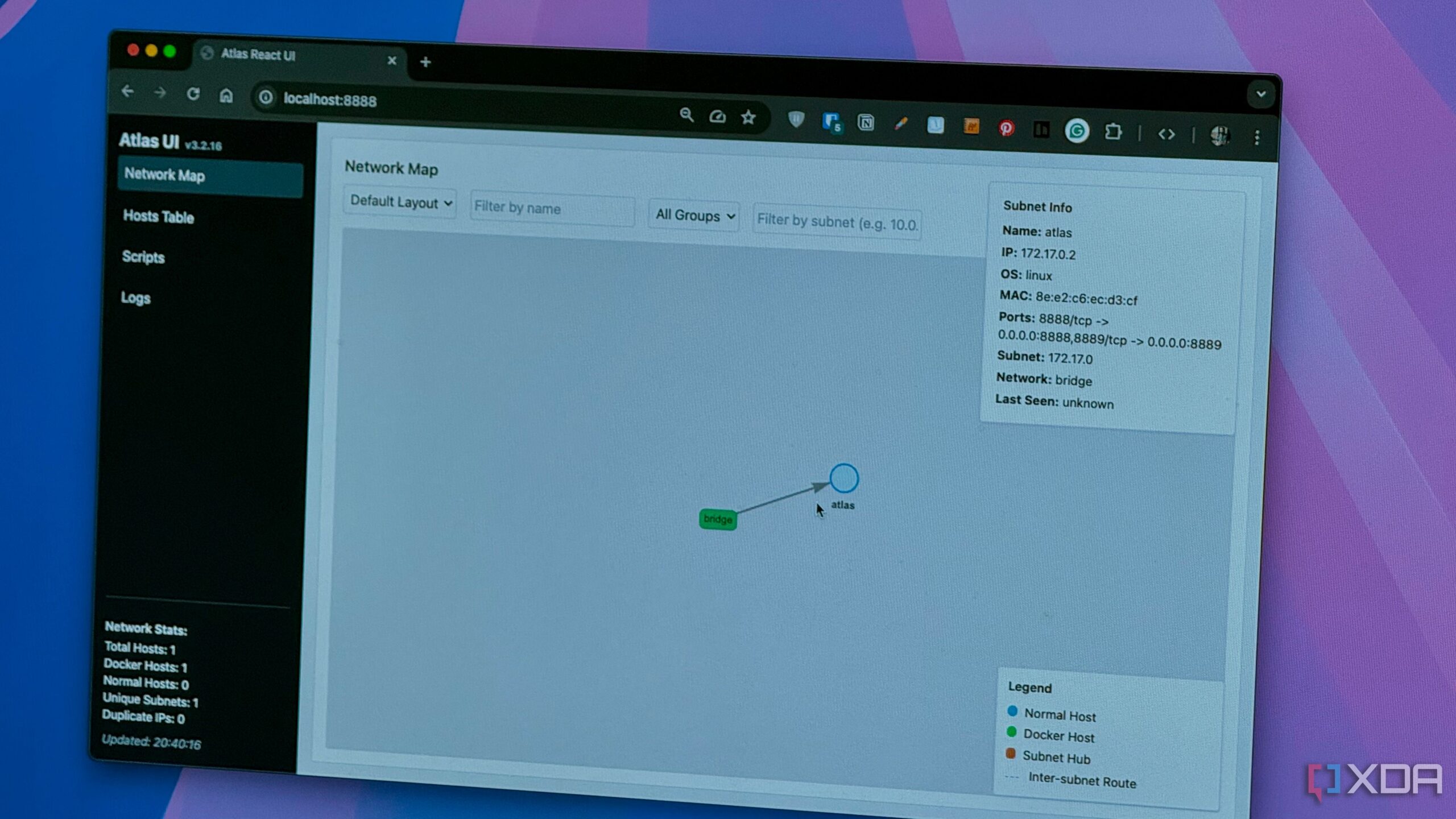UPDATE: A groundbreaking tool called Atlas has just launched, promising to transform how Docker users manage their containers and networks. This lightweight visualizer is essential for anyone looking to streamline their self-hosting experience.
For developers and sysadmins alike, the complexities of managing multiple Docker containers can escalate quickly. With Atlas, users can now visualize their entire Docker environment in real-time, eliminating the need to sift through terminal output or log files. The urgency for this tool is palpable as self-hosters scramble to keep their systems organized and efficient.
Atlas delivers an intuitive dashboard that populates vital information instantly upon setup. According to its GitHub page, the installation process is seamless, making it ideal for first-time self-hosters. Users can quickly access a comprehensive map of their Docker containers, networks, and their interconnections—all without extensive configurations or steep learning curves.
The default network map is a game-changer, allowing users to see at a glance how containers are interlinked. This feature not only enhances operational clarity but also significantly reduces the mental overhead involved in managing numerous containers. With Atlas, understanding the flow of data across containers has never been easier, making it an invaluable asset for developers whose services must communicate flawlessly.
Atlas also excels in network monitoring. Users can observe real-time communication between containers, identify isolated setups, and troubleshoot connectivity issues with unparalleled ease. For those concerned about security, the tool scans subnets to reveal other active devices on the network, running automatic scans every 30 minutes. This proactive feature ensures that users stay ahead of potential network challenges.
The versatility of Atlas extends beyond mere visualization. It fits seamlessly into various workflows, making it an ideal choice for developers managing multiple web services or sysadmins monitoring their environments. The ability to quickly diagnose issues without diving into command-line interfaces is a significant time-saver. This tool has quickly proven its worth, shifting from a luxury to a necessity in any Docker setup.
As the world moves towards increasingly complex web services, tools like Atlas reduce the barriers associated with managing Docker environments. With its user-friendly interface and powerful features, Atlas is rapidly becoming a must-install application for anyone involved in self-hosting.
For those already utilizing Docker, adopting Atlas can simplify operations and enhance oversight, while new users will find it invaluable in navigating their initial setups. Don’t miss the chance to integrate this essential tool into your Docker workflow today.
Share this news with fellow developers and sysadmins to ensure they are equipped with the best tools for their Docker environments. The launch of Atlas could very well redefine the self-hosting landscape as we know it.





































































